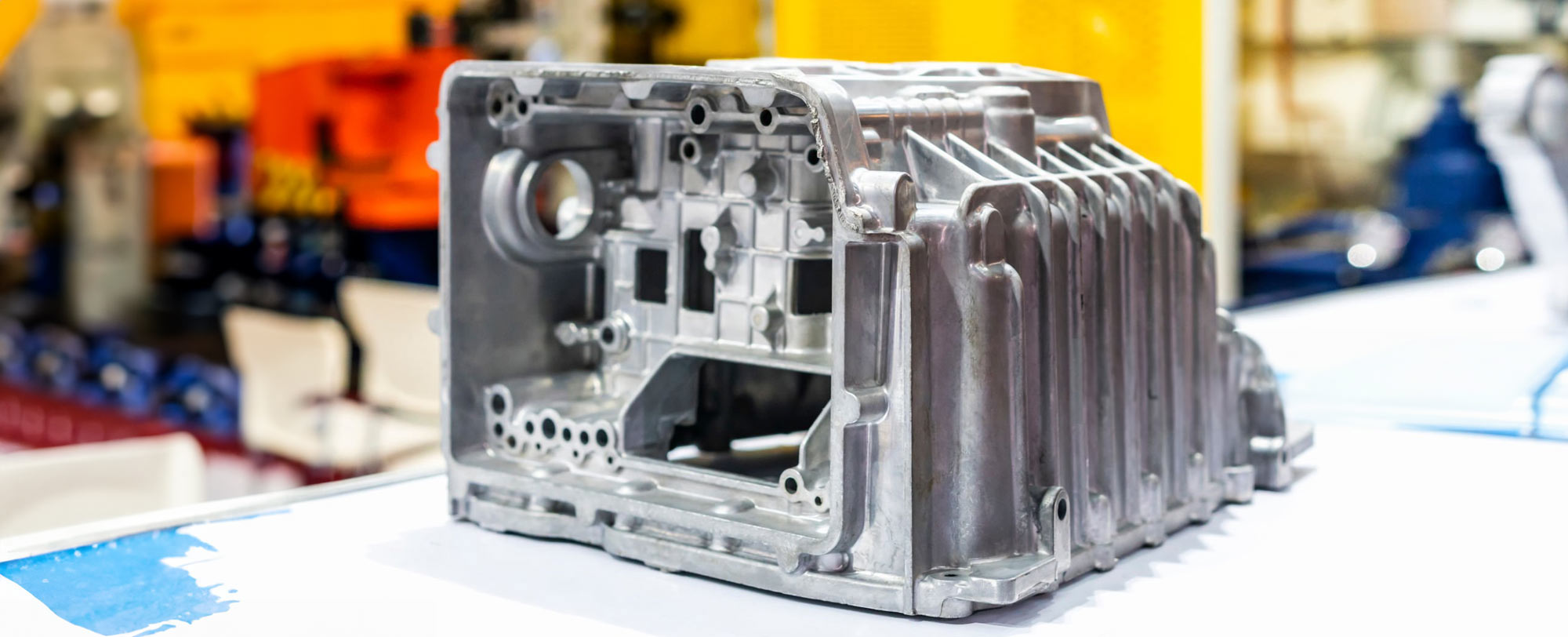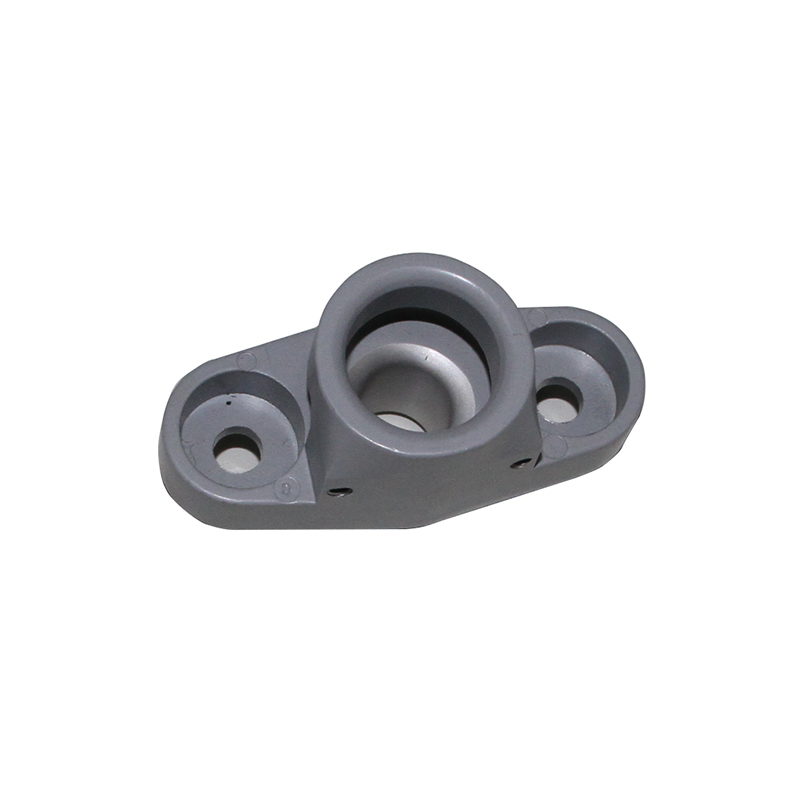The importance of aluminum casting in creating lightweight metal parts
Wiki Article
The Duty of Aluminum Foundries beforehand Lightweight Manufacturing Solutions
Aluminum shops greatly add to the development of light-weight manufacturing remedies. Their innovative spreading innovations produce high-strength, lightweight components necessary for sectors like vehicle and aerospace. This improvement not only enhances product performance yet also advertises sustainability with making use of recycled materials. As these factories adapt to arising modern technologies and methods, they lead the way for future advancements in making efficiency and environmental obligation. What exists ahead in this transformative journey?The Advantages of Lightweight Products in Manufacturing
As markets increasingly look for efficiency and sustainability, the fostering of light-weight materials in production has actually become a necessary method - Aluminum Foundry. These materials, especially aluminum and composites, use many advantages that boost manufacturing procedures and product efficiency. Largely, their lowered weight adds to lower energy usage during transport and procedure, bring about substantial expense financial savingsFurthermore, lightweight materials promote the style of more complex geometries, allowing for higher technology in item advancement. This adaptability often causes boosted functionality and efficiency, accommodating the advancing needs of contemporary consumers.
Furthermore, the usage of light-weight materials can boost the longevity of products as a result of their resistance to corrosion and tiredness. This toughness not just decreases maintenance costs however likewise supports sustainability efforts, as longer-lasting items add to less waste. To sum up, the advantages of light-weight products are essential in driving effectiveness, innovation, and ecological responsibility in production.
Developments in Light Weight Aluminum Casting Technologies
Recent innovations in light weight aluminum casting modern technologies are transforming the manufacturing landscape, specifically in the manufacturing of lightweight parts. Advancements such as high-pressure die casting and vacuum die spreading have actually considerably improved the accuracy and surface area coating of aluminum components - Aluminum Casting Company. These techniques enable for the development of intricate geometries while minimizing product waste and improving mechanical homes
Additionally, the execution of real-time tracking systems ensures quality assurance throughout the spreading procedure, resulting in even more regular product end results. Collectively, these developments not just enhance the efficiency of aluminum parts yet additionally support the market's shift towards even more sustainable manufacturing practices.
Applications of Light Weight Aluminum Elements in Various Industries
While light weight aluminum elements have long been utilized in numerous markets, their flexibility and lightweight buildings remain to drive cutting-edge applications across markets such as automotive, aerospace, and building and construction. In the automotive market, aluminum is progressively used for engine blocks, wheels, and body panels, enhancing gas performance and efficiency. Aerospace manufacturers take advantage of light weight aluminum for airplane structures and elements, maximizing its strength-to-weight ratio to enhance fuel economic situation and payload capacity.In Read More Here the building and construction sector, aluminum is preferred for window frameworks, roofing, and architectural elements, giving sturdiness and resistance to rust while decreasing total structure weight. Furthermore, the electrical and electronic devices markets benefit from light weight aluminum's conductivity and light-weight nature, using it in electrical wiring, enclosures, and warm sinks. These varied applications highlight the crucial role of aluminum elements, which not just meet industry demands but additionally contribute to innovations in product style and performance throughout multiple areas.
Sustainability and Power Performance in Aluminum Foundries
The aluminum foundry market plays a crucial function in advertising sustainability and power efficiency, particularly as need for light-weight components proceeds to grow throughout various industries. Shops are significantly adopting eco-friendly practices, such as utilizing recycled light weight aluminum, which significantly decreases power intake and greenhouse gas exhausts contrasted to primary aluminum production.Additionally, developments in casting modern technologies improve energy effectiveness by optimizing the melting processes and decreasing waste. Techniques like die spreading and financial investment spreading permit accurate material usage, lessening excess and scrap.
Additionally, lots of shops are buying eco-friendly energy sources to power procedures, further lowering their carbon footprint. Executing power management systems allows factories to enhance and keep an eye on energy use, guaranteeing they operate at peak effectiveness.
Future Patterns in Lightweight Production Solutions
Just how will emerging technologies form the future of light-weight manufacturing solutions? Innovations such as advanced products, automation, and additive manufacturing are established to redefine production processes. The integration of wise manufacturing innovations, consisting of the Internet of Things (IoT) and expert system (AI), will enable real-time tracking and optimization, improving efficiency and minimizing waste.
As sustainability remains to be a critical problem, light-weight solutions will significantly concentrate on recycling and reusing materials, straightening with round economic climate principles. This advancement in lightweight production will not my company only enhance product performance yet also add to ecological goals, making sure that the market continues to be affordable in a swiftly altering market landscape.
Often Asked Concerns
Exactly How Do Aluminum Foundries Make Certain Quality Assurance in Manufacturing?
Aluminum foundries ensure quality assurance in production with strenuous screening, standardized procedures, and continual tracking - Aluminum Casting Company. They apply knowledgeable workers and sophisticated modern technologies to maintain uniformity, lower problems, and meet sector standards throughout the manufacturing processWhat Are the Key Tests Encountered by Aluminum Foundries?
Light weight aluminum foundries deal with obstacles such as rising and fall raw product expenses, keeping manufacturing performance, guaranteeing constant top quality, adapting to technical developments, and meeting environmental policies, all of which effect their general functional effectiveness and competition out there.How Does Light Weight Aluminum Recycling Influence Factory Procedures?
Light weight aluminum reusing substantially improves shop procedures by decreasing resources expenses, minimizing power consumption, and lowering environmental influence. This sustainable method allows foundries to boost effectiveness while satisfying enhancing demand for light-weight, high-performance light weight aluminum products.What Abilities Are Needed for Employees in Light Weight Aluminum Foundries?
Employees in light weight aluminum shops need abilities in metallurgy, machining, quality control, and safety and security practices. Effectiveness in operating machinery, recognizing alloy residential properties, and analytical are additionally essential for effective manufacturing and maintaining high safety and security standards.Exactly How Do Light Weight Aluminum Foundries Take Care Of Waste Management?
Aluminum foundries manage waste via recycling scrap steel, using reliable waste segregation methods, and adhering to ecological policies. They implement lasting techniques to decrease garbage dump payments, ensuring that hazardous products are dealt with sensibly.Light weight aluminum foundries greatly contribute to the advancement of light-weight manufacturing remedies. read review Recent developments in aluminum casting technologies are changing the production landscape, specifically in the manufacturing of light-weight parts. While light weight aluminum parts have actually long been used in various markets, their adaptability and light-weight residential or commercial properties proceed to drive innovative applications across sectors such as automotive, aerospace, and building and construction. Additionally, the electrical and electronic devices markets profit from light weight aluminum's conductivity and lightweight nature, using it in circuitry, rooms, and heat sinks. The aluminum factory market plays an essential function in promoting sustainability and power effectiveness, specifically as demand for light-weight parts continues to expand throughout numerous fields.
Report this wiki page